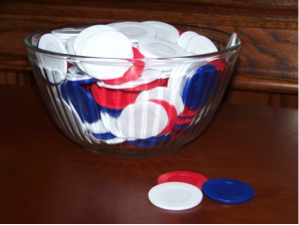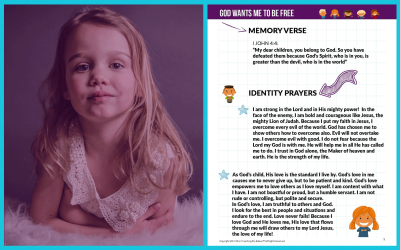Written by Dr. Melodye Hilton for Who’s Teaching the Babies?®
Raising Trustworthy Kids
6 minute read
Raising Trustworthy Kids
6 minute read
Writen by Dr. Melodye Hilton for Who’s Teaching the Babies?®
Every good parent or caregiver wants to raise their children to be honest, mature, and caring. Because of this, we can become alarmed when we see these same precious children choose blatantly and unashamedly to lie rather than tell the truth. Many become concerned for their children at their choices of irresponsibility, laziness, and blatant disregard for personal responsibility. Rarely would a child be taught to lie or be irresponsible, so how could this happen?
Here are a few reasons.
Immaturity: Maturity takes a lifetime of development. It requires great patience in the training process and develops through a lifetime of healthy choices. Just think of this: every physical part of a child’s body is fully developed at birth except for the brain, which takes 25 years to mature.
Fear: All fear is self-focused and self-protective. Face it; the younger a child is the more they focus on what will meet their need. Whether it is a core or a felt need, it is of paramount importance to them at the moment. The core need of love, validation or acceptance is vital to their growth and they will do whatever they can to not be rejected or abandoned. Their felt needs are what they want NOW! Taking responsibility or speaking the truth simply does not benefit them when their focus is solely on themselves. You see, empathy is also a developed skill formed in the neuro-networking of the brain.
Shame: It is so much easier to lie than to admit that I’ve failed. If I failed, I must be a failure. If I made a wrong choice, I must be bad. Lying deceitfully carries the thought that I am not to blame. The challenging reality is, when lying becomes a habit it can develop neural-memory that will cause the lie to seem more real to them than the truth.

Love them, confront the action, and train them: While we do not validate negative behavior, we do value the child in our words and actions. Withholding love is the worst thing we could do to try to correct bad behavior. We allow them to experience the full consequence of their choice, but love them through the process of that consequence. Even a child will feel good when they do good. Likewise, they will feel bad when they do bad. The more they experience the good emotions, attitudes, and beliefs associated with personal responsibility, the more confidence and self-respect they will gain. Remember, every child wants you to be proud of him/her!
“To be trusted is a greater compliment than being loved!” George MacDonald
Everyone, even small children, want to be trusted. Even they must understand that trust is something you earn; something they must be willing to prove through the choices they make.

STEP ONE
EXPLAIN TRUST

STEP TWO
BUILDING TRUST

STEP THREE
BREAKING TRUST
But what happens when we lie, do not keep our promise, or act in irresponsible ways? These things act as trust withdrawals from our trust bowl or bank. Explain that they are the only one who has the power to make a deposit or a withdrawal from their trust bank. Communicate, “I want to believe what you say and trust that you will do the right thing, but only you can choose to make a deposit or withdrawal.”
You see, it’s not a matter of love or validation; it’s about the ability to trust them based upon his/her choices. The moment he or she realizes they have the ability to regulate what you believe about their trustworthiness, they will want to protect their trust bowl.
One day I was teaching my beautifully strong-willed four-year-old granddaughter. She often lived for the moment as she violated boundaries or yielded to out-of-control emotions. I took a bowl and began to show her about making deposits and withdrawals of trust. When I literally removed the trust chips explaining the choices she had made were trust withdrawals, she forcefully grabbed them and put them back into the bowl passionately declaring “No, I want them to stay in the bowl!”
I began to reveal that though I loved her very much, I could only trust if there was trust in the bowl. She was the only one who could make the deposit or the withdrawal.
I asked her what choices would be withdrawals and she immediately rehearsed different scenarios. When I asked her how she could make trust deposits, she shared all types of healthy attitudes and actions. After that day when emotions were high, I would calmly say, “As you keep your word you’ll make a deposit” or “every time you tell me the truth you’re making a deposit.” She understood. She wanted me to trust her, but she also wanted to be trustworthy.
This understanding affirms a child’s power of healthy choice. Most children do not want to disobey, but because they are focused on something they want or the emotions they feel, they react rather than respond. When they can begin to realize the power they have to empty out or fill up their trust bowl, they are empowered. Training isn’t always easy, but it produces beautiful results when understood.
Keep up the good work, teach your children the power of tending their “trust bank,” and empower them to be the most trustworthy, powerful, and responsible choice makers that they can be.
Want to receive new blog posts and resources right in your inbox?
Subscribe to our Mailing List.
Get social with us.
Read More
Mothering Fully Present
God isn’t looking for perfect moms with perfect methods and ideas to raise His kids. Just moms who are humble and pliable and rest-FULL enough from the inside-out to hear His voice and partner with Him.
Identity Statements
Throughout over 30 years of ministering identity and destiny to children, we have put together many prayers, identity statements, and tools to empower and speak truth into precious young lives. Here we have the privilege of being able to offer some of these resources just for YOU to minister life in your very own home.
God Wants Me to be Free – FREE LESSON PLAN
Through this simple, but powerful lesson plan, teach your children the authority that they have over the enemy and how they have the power to choose what they will allow to affect their heart and soul.
Who's Teaching the Babies?®
Establishing identity and destiny one baby at a time.
QUICK LINKS
FOLLOW US




0 Comments